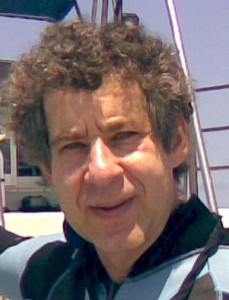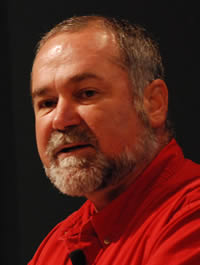
CLIMATE: Amid budget scrutiny, CIA shutters climate center
Annie Snider, E&E reporter
Greenwire: Monday, November 19, 2012
With the U.S. intelligence budget shrinking, the CIA has quietly shut down its Center on Climate Change and National Security — a project that was launched with the support of Leon Panetta when he led the agency, but that drew sharp criticism from some Republicans in Congress.
Multiple sources with knowledge of the center said it closed its doors earlier this year, with its staff and analysis continuing under other auspices.
CIA spokesman Todd Ebitz confirmed the change.
“The CIA for several years has studied the national security implications of climate change,” Ebitz said in a statement to Greenwire. “This work is now performed by a dedicated team in an office that looks at a variety of economic and energy security issues affecting the United States.”
The CIA launched the climate change center in September 2009 after a spate of reports linking climate change and national security that drew interest from some members of Congress seeking political action on climate change.
The center was designed as a small unit of senior specialists focused on the impact that environmental changes could have on political, economic and social factors in countries of concern to the United States. The analysts probed questions such as, under what scenarios might a massive drought cause large-scale migration, and when might a government's failure to respond to a devastating flood open the door for terrorist groups to win over the local populace?
Analysts at the center worked to develop warning software that combined regional climate projections with political and demographic information, and held climate war games looking at what might happen in extreme scenarios, such as if rapid glacial melt caused the ocean's major currents to shut down.
The center didn't focus on the science behind climate change but instead relied on data from other government agencies as well as recommendations — including ones in a report released just over a week ago — from the National Academy of Sciences (Greenwire, Nov. 9).
But congressional Republicans skeptical of the science behind climate change sought to block the center's funding shortly after it was launched. Those efforts failed, but sources say the center received little internal support after Panetta left the CIA in 2011 to take the top job at the Defense Department. Under his successor, David Petraeus, the agency was highly focused on terrorism, specifically targeted killings using armed drones.
“Especially since Panetta left, there wasn't a lot of love for this at the CIA,” a former defense official said of the climate center's work.
The exact timing of the closure and the reasons behind it are not clear. Those close to the center speculate that the move may have been intended to pre-empt cuts from Congress. The total U.S. intelligence budget has declined for the past two years, dipping to $75.4 billion for fiscal 2012 after peaking at $80.1 billion in fiscal 2010.
“It could be that they're just not looking to throw red meat in front of the House,” the former defense official said.
Indeed, at least one congressional Republican is celebrating the center's demise.
“Closing the Climate Change Center at the CIA was the right decision,” said Sen. John Barrasso (R-Wyo.), who led efforts to block the center's funding, in a statement to Greenwire. “It's critically important for the CIA to focus its resources on preventing terrorism and keeping Americans safe.”
Sources say, however, that the closure of the center has had little impact on the agency's climate analysis.
“Frankly, I haven't noticed any change in the work,” a second former defense official said.
In fact, that former official said, the center may have been closed simply because the work fit better elsewhere in the agency.
“You need to have the expertise also embedded in the regional bureaus, divisions, departments of the agency,” the former official said. “That's often how the strategic thinking and analysis is organized — by country and region. If you don't have [issues such as] climate, energy, health, natural resource issues included in your country and regional geostrategic analysis, then you're missing part of the picture.”
A fit for intelligence agencies?
While many of those who are concerned about the national security implications of climate change were pleased that the center sent a symbolic message about high-level support for the issue, there has been a long-running debate within the security world about whether such work should be done from within the secretive intelligence community.
Much of the information and expertise that the center needed in order to do its analyses is based in the academic world and involves non-U.S. nationals, whom the intelligence community tends to eye with suspicion.
The CIA climate center was launched with a mandate to “be aggressive in outreach to academics and think tanks working the issue,” according to a release from the time. But aside from an exclusive interview with this reporter in fall 2010 and a well-attended but vague briefing at the Pew Charitable Trusts in January 2011, the center has kept a low public profile.
The first former defense official said that while the analysis being done by the CIA center was valuable, the work would be a better fit within the Defense Department's policy office or at the State Department.
“I'm not sure I'd put this in the intel community — they don't know how to share stuff,” the former official said.
But Rolf Mowatt-Larssen, who worked as a CIA intelligence officer for 23 years and led the Department of Energy's intelligence unit from 2005 to 2008, said intelligence agencies have a clear stake in understanding the consequences of climate change.
“You can't have a five-minute discussion with someone with a brain and not realize that this is going to have a huge impact on security,” Mowatt-Larssen said.
Moreover, he said, the intelligence community brings a focus on action.
“Love us or hate us, we're always action-oriented,” Mowatt-Larssen said. “The climate community is filled with intellectuals who write about it, blog about it, but they don't do anything. Intelligence — you get them involved and they'll do something.”
In addition to the CIA's work, the National Intelligence Council — the intelligence community's mid- and long-range forecasting arm — has also been analyzing the potential security impacts of climate change. The council released a classified report on the topic in 2008, and this year completed a report assessing potential tensions related to access to water (Greenwire, March 22).
Whether and from where the issue may get support going forward remains an open question. The top job at the CIA now sits open, following Petraeus' recent departure amid a sex scandal. The State Department's top slot will also come open, as Hillary Rodham Clinton has signaled her intention to step down at the end of the term. And while Panetta has announced no plans to leave DOD, rumors are circulating in Washington that Sen. John Kerry (D-Mass.) is being considered by the Obama administration as his successor.
Those who watch climate and security issues say top-level leadership is critical. But, they say, interest has been growing from multiple directions in recent years.
“I'm seeing more people who are assigned to slots that don't say ‘climate,' ‘energy' or ‘environment' in their title, but who have an interest and awareness on this,” the second former defense official said.
The inclusion of climate change in top-level national security documents in recent years has signaled that the Defense Department takes the issue seriously, said Francesco Femia, founding director of the Center for Climate & Security.
“Now there's a sense that climate as a security issue is part of the norm,” Femia said. “We don't think that's going to be going away.”

Click Here to See Personal Page
ROBERT STEELE: Poor CIA….it's lost its mind and its soul, and is floundering badly. Mike Morell–much admired by people I admire–does not seem to realize that crisis is opportunity, and this is the perfect time to radically re-boot CIA. Nothing Jim Clapper or Mike Flynn or Mike Vickers do actually contributes to the President's Program. Nothing CIA does either, but CIA, followed by DIA, are the two places where intelligence with integrity could change the game. I am not expecting anything from them, and that will do nicely as their epitaph. Until we get a Secretary of Defense that sees Defense as the center of gravity for the second term, and also understands that intelligence with integrity is the one thing that can help get us to Whole of Government PPBS/E, a 450-ship Navy, a long-haul Air Force, and an air-liftable Army, everyone will remain in grid-lock, including Mike Morrell. I'd like to help him, but as the joke goes, the lightbulb has to WANT to change.
See Also:
21st Century Intelligence Core References 2007-2013
2006 Sutton (US) Global Coverage, Looking Backward, Looking Forward
1997 Sutton (US) The Challenge of Global Coverage
INTELLIGENCE for EARTH: Clarity, Diversity, Integrity & Sustainability (2010)
Journal: Reflections on Integrity UPDATED + Integrity RECAP
Mini-Me: Jane Harman at CIA? Over Many Dead Bodies + CIA RECAP
ON INTELLIGENCE: Open Letter to the President
ON INTELLIGENCE: Spies and Secrecy in an Open World (2000)
Robert Steele: John Kerry, Global Engagement, and National Integrity PLUS Michele Flournoy
Who’s Who in Collective Intelligence: Robert David STEELE Vivas



